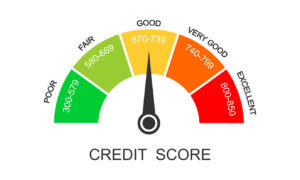 Vehicle repossession is inconvenient and worrisome, but it is possible to get your car back. After the repossession agent comes, the lender is to send the borrower a repossession notice, frequently called a Notice of Intent to Sell Property. This notice will inform the borrower of terms to get the vehicle back. Sometimes the lender will demand a full loan payoff, while other times, past due payments may be accepted. This notice informs the borrower of the vehicle’s location, the cost of repossession and any storage charges. The borrower usually has 30 days to arrange for retrieval of any personal property from the repo lot.
Vehicle repossession is inconvenient and worrisome, but it is possible to get your car back. After the repossession agent comes, the lender is to send the borrower a repossession notice, frequently called a Notice of Intent to Sell Property. This notice will inform the borrower of terms to get the vehicle back. Sometimes the lender will demand a full loan payoff, while other times, past due payments may be accepted. This notice informs the borrower of the vehicle’s location, the cost of repossession and any storage charges. The borrower usually has 30 days to arrange for retrieval of any personal property from the repo lot.
Continue reading How Do I Get My Repossessed Car Back in Pennsylvania? →

 Sometimes things come up and you miss a payment on your auto loan. To avoid a
Sometimes things come up and you miss a payment on your auto loan. To avoid a  Shopping for a new vehicle can be overwhelming on its own without even considering the auto loan application process. But if you don’t take the time to research and compare auto loans, you may end up with a bad deal.
Shopping for a new vehicle can be overwhelming on its own without even considering the auto loan application process. But if you don’t take the time to research and compare auto loans, you may end up with a bad deal.

 Flitter Milz is a consumer protection law firm that represents victims of vehicle repossession. If a borrower defaults on a bad auto loan and the vehicle is repossessed, Flitter Milz will evaluate whether the lender violated the borrower’s consumer rights. If your vehicle has been repossessed in the past six years,
Flitter Milz is a consumer protection law firm that represents victims of vehicle repossession. If a borrower defaults on a bad auto loan and the vehicle is repossessed, Flitter Milz will evaluate whether the lender violated the borrower’s consumer rights. If your vehicle has been repossessed in the past six years,  Before applying for any new line of credit, it’s good practice to
Before applying for any new line of credit, it’s good practice to  However, credit scores that fall in the non-prime (620-679) and subprime (550-619) ranges may not necessarily indicate that you aren’t eligible for a reasonable interest rate. Lenders often use different tiers according to their own business needs to assess creditworthiness.
However, credit scores that fall in the non-prime (620-679) and subprime (550-619) ranges may not necessarily indicate that you aren’t eligible for a reasonable interest rate. Lenders often use different tiers according to their own business needs to assess creditworthiness. Flitter Milz is a consumer protection law firm that pursues matters against lenders, debt collectors and the credit bureaus. If a lender wrongfully repossesses a vehicle, a debt collector is abusive or the credit bureaus report information inaccurately, the consumer may have a lawsuit to pursue. For a no cost legal evaluation,
Flitter Milz is a consumer protection law firm that pursues matters against lenders, debt collectors and the credit bureaus. If a lender wrongfully repossesses a vehicle, a debt collector is abusive or the credit bureaus report information inaccurately, the consumer may have a lawsuit to pursue. For a no cost legal evaluation, 
 When you need to secure a loan for the purchase of your new vehicle,
When you need to secure a loan for the purchase of your new vehicle,